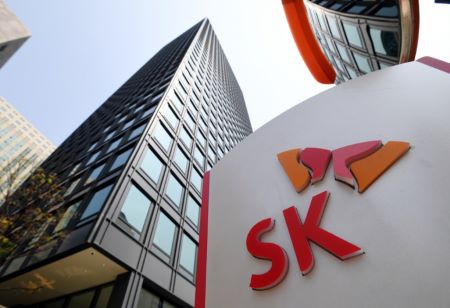
SK Hynix of South Korea has raised US$1.7 billion in its first convertible bond issue in a decade, as the world's second-largest memory chipmaker braces for further quarterly losses due to a severe drop in global semiconductor demand.
The funding is the firm's first since it was purchased by energy to telecoms giant SK Group in 2012. It follows a rare US$15.2 billion financing arrangement in February by cash-rich Samsung Electronics.
In a regulatory statement on Tuesday, SK Hynix stated that the proceeds of the bond sale will be utilised to support activities such as purchasing chip fabrication materials. The bond is convertible into 20.1 million shares, or a 2.8 percent stake.
"This financing is expected to end market concerns about a short-term liquidity crunch," Kim Kwang-jin, an analyst at Hanwha Investment & Securities, wrote in a note.
SK Hynix shares fell as high as 4% before recovering to a 2.5% loss, compared to a 0.4% gain in the overall market.
After a record quarterly operating loss of 1.7 trillion won (US$1.4 billion) in the September-December quarter, SK Hynix is soliciting funds.
Experts predict a significantly larger loss in the March 31 quarter, followed by a resurgence in the memory chip business in the second half of the year.
According to a term sheet viewed by sources, the bonds, which will be traded in Singapore, would carry a coupon of 1.75 percent per year and will maturity in 2030.
According to sources, SK Hynix's convertible bond was the largest in the Asia-Pacific area, excluding Japan, in a year.
As per a source familiar with the subject who was not authorised to speak publicly, the business originally expected to raise up to US$1.5 billion, but the size was boosted to US$1.7 billion while the bookbuild was underway due to significant demand.
According to the individual, demand for the bonds was four times the amount on offer, and investor enthusiasm was not dampened by recent global financial market turmoil.
"We successfully sold bonds due to substantial demand," SK Hynix stated in a statement. "Many investors are reported to have placed weight on the company's development prospects, despite adverse business conditions."
The deal's only bookrunner was Bank of America.